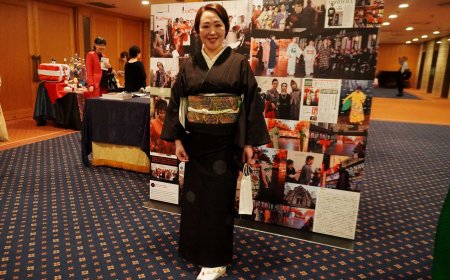Implicit Communication in Japanese Culture
The labyrinth of Japan's high-context communication, where words often dance around the unsaid that reveal deeper cultural nuances.

Deciphering Japan's Linguistic Quirks
When it comes to intercultural communication, Japan stands out for its intricate web of social nuances and implicit communication styles. Central to understanding these subtleties is the concept of Japan's high-context culture, where meaning is often conveyed through context, nonverbal cues, and implicit understandings rather than explicit language. One fascinating aspect of this phenomenon is the apparent reluctance of Japanese speakers to use the word "no" directly in their language.

Navigating Social Harmony
In Japanese society, maintaining harmonious interpersonal relationships is paramount. This cultural value is deeply embedded in everyday interactions, where politeness and sensitivity to others' feelings reign supreme. As a result, direct refusals or negative assertions can be perceived as disruptive to the delicate balance of social harmony. Thus, rather than outright saying "no," Japanese speakers often employ indirect and subtle means to convey their intentions, preserving the equilibrium of the social dynamic.

Saying No Without Saying No
The avoidance of explicit refusals in Japanese communication reflects a cultural preference for indirectness and implicitness. Rather than explicitly rejecting a request or proposal, individuals may employ tactics such as vague responses, delaying tactics, or expressing reluctance to convey their reluctance or disagreement indirectly. This indirect approach allows for the preservation of face and the avoidance of direct confrontation, aligning with the cultural emphasis on maintaining harmony and avoiding conflict.
A sample scenario:
Hiroshi: Hey, Ayumi! I was wondering if you'd like to join me for karaoke tonight?
Ayumi: Hmm, well, you know, I'm feeling a bit under the weather lately, and my voice is not at its best.
Hiroshi: Oh, no worries! We can just go and enjoy some snacks instead, if you prefer.
Ayumi: Actually, I just remembered I have... umm... a prior commitment. Yeah, that's it!
Hiroshi: (grinning) Ah, I see, Ayumi. Maybe next time!
Ayumi: Definitely! Let's plan something for when my "prior commitments" aren't so busy.

Preserving Dignity in Communication
In Japanese culture, the concept of "saving face" carries significant weight. Avoiding direct refusals helps individuals protect not only their own dignity but also the dignity of others involved in the interaction. By opting for indirect communication strategies, individuals can gracefully navigate potentially awkward or uncomfortable situations without causing embarrassment or loss of face for either party. This cultural norm underscores the importance of maintaining interpersonal relationships and upholding mutual respect in Japanese society.

Reading Between the Lines
Japan's high-context culture requires a keen ability to decipher implicit cues and subtle nuances in communication. Understanding the unspoken messages conveyed through tone of voice, body language, and context is essential for grasping the true meaning behind seemingly ambiguous responses. While this may present challenges for those accustomed to more direct communication styles, mastering the art of reading between the lines is crucial for effective intercultural communication in Japan.

Embracing Cultural Complexity
In Japan, the linguistic phenomenon of avoiding direct refusals reflects a broader cultural ethos centered on harmony, politeness, and mutual respect. By exploring the intricacies of Japan's high-context culture and embracing the art of implicit communication, individuals can deepen their understanding of Japanese society and foster more meaningful connections across cultural boundaries. While the absence of a straightforward "no" may initially perplex outsiders, it is through this very complexity that the richness of Japanese culture truly shines.
Find Cheap Flight Tickets to any Destinations in Japan and the Philippines
Nipino.com is committed to providing you with accurate and genuine content. Let us know your opinion by clicking HERE.






























































